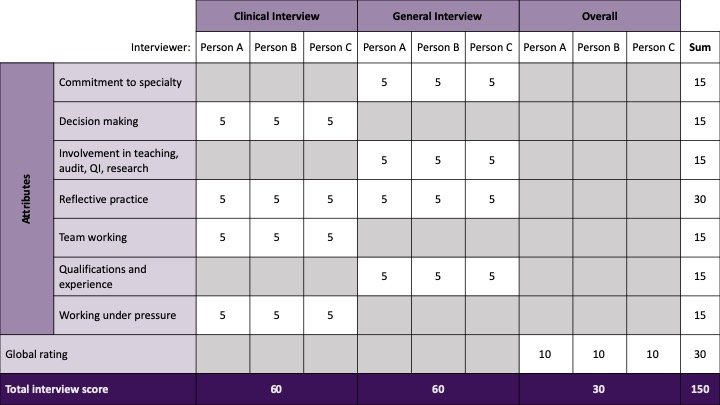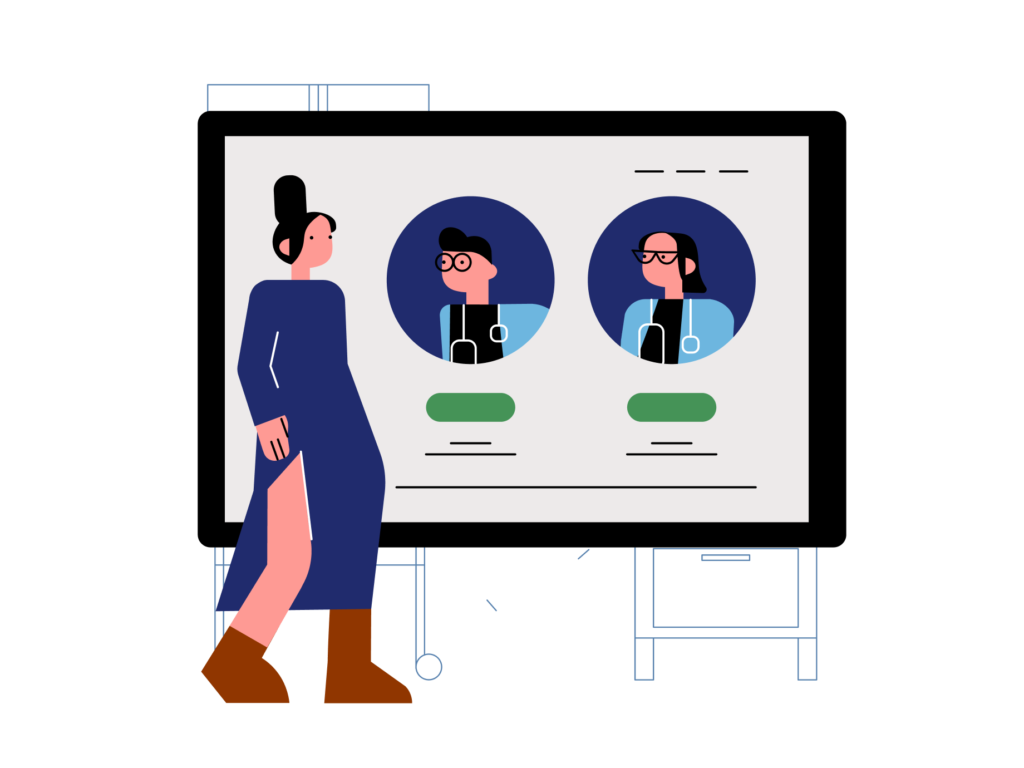In case you haven’t come across these already, the RCoA Recruitment Committee have worked with past trainees to give you a snapshot of what to expect in the next recruitment round through their interview guidance and interview simulation videos.
These are great to help you visualise what will be going on on the day, including:
- administrative steps
- what will happen when you join the interview panel in the virtual interview room
- the standard of anaesthetics CT1 interview questions you may be asked during the interview
We encourage you to watch these videos in your own time at https://rcoa.ac.uk/news/recruitment-round-3-february-2023-starts-simulated-interview-preparation-videos-ct1accs
Here a brief summary of the information you might find:
The interview in the February 2023 recruitment round will be held on Microsoft Teams. It lasts 30 minutes and consists of two parts, a “Clinical Station” and a “General Interview Station”. Your interview panel will include two or three interviewers and there may be a quality assurance assistant joining as well. The video “How to Prepare for Anaesthetics CT1 & ACCS (Anaesthetics) Interview“ provides valuable insights into the general setup and talks you through the anaesthetics CT1 scoring matrix and scoring guidance for grading the candidate. The presenter shares anaesthetics interview tips and a few excellent frameworks and points to keep in mind for the specific domains that you will be assessed on, including communication, commitment to specialty, clinical judgement and decision making.

In The 7 Habits of Highly Effective People, Stephen R. Covey points out that it is important to clearly define in your mind what you want to accomplish before you go ahead and tackle the situation in real life. This may require using your imagination, making a plan, acting things out and rehearsing. By visualising your interview in detail, playing it through in your mind and practising interview scenarios, you can create an inner comfort zone and when it comes to the day of the interview, it doesn’t seem quite as foreign.
Visualising an event is an important tool for many successful people in achieving their goals.
The need for practice is especially important in your CT1 interview as you will be scored on your communications skills as well as your knowledge and formal qualifications. Regular practice can help you move from ‘Very Good’ to ‘Outstanding’ interview performance.
Use the anaesthesia interview video on the RCoA website as a guide to help you visualise some of the details on the day, and then take as many opportunities as you can to present your own answers to other people. This will give you an idea of how you will likely feel and perform in the real interview. If you want to practise with people you haven’t met before, we offer online mock interview sessions where our successful CT1 trainees provide you with two realistic interview scenarios and you will be matched with another subscriber to practise one scenario each under timed conditions. Register your interest at: https://lu.ma/ast

